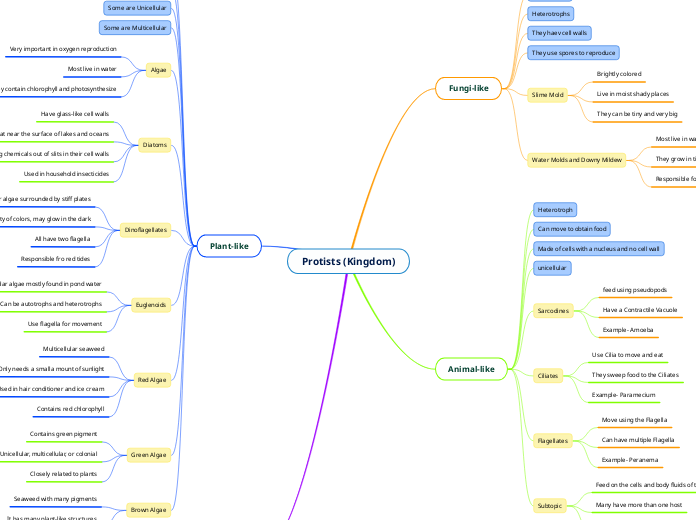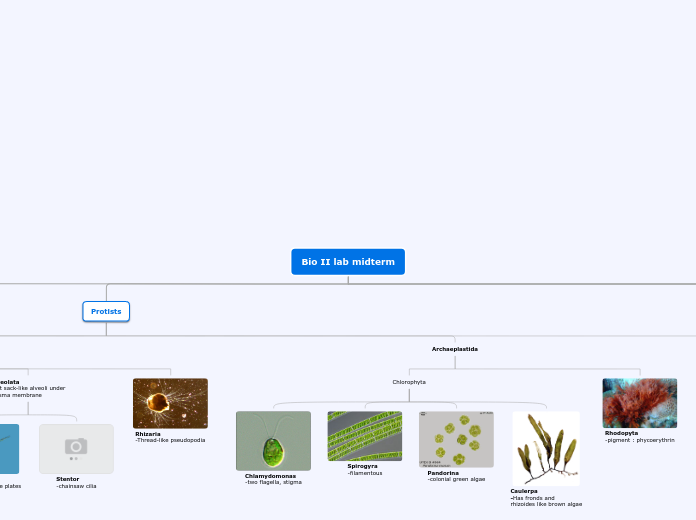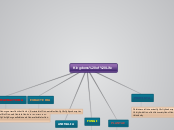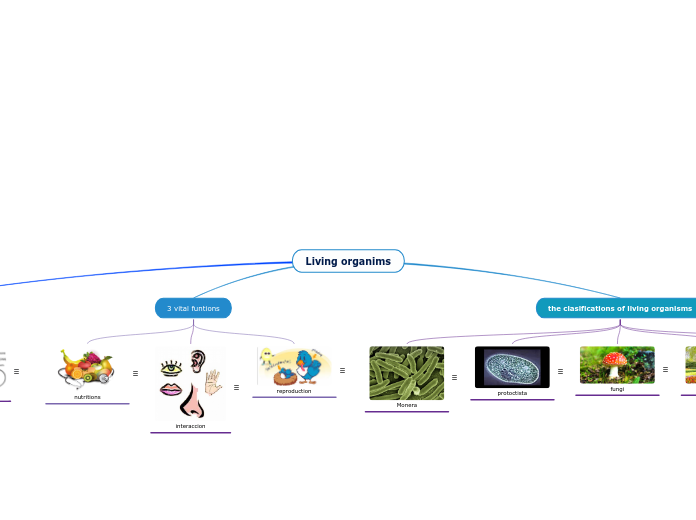por Sofia Thompson 2 anos atrás
171
Protists (Kingdom)
Protists are a diverse kingdom of mostly unicellular, eukaryotic organisms. They are classified into three main groups based on their similarities to animals, plants, and fungi. Animal-like protists, such as flagellates and ciliates, move to obtain food using structures like flagella, pseudopods, or cilia.









